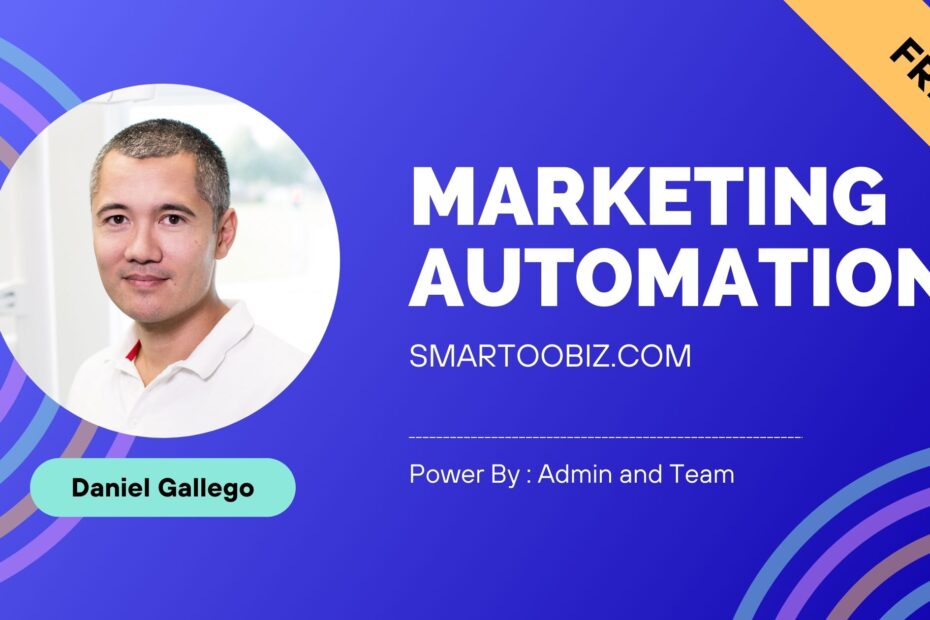Hey. I would like to share an article on Marketing Automation Definition and Strategy Guide. Maybe this looks interesting to me and hopefully it happens to you too. so keep reading and take a much deeper look at what I wrote in this article. Hopefully it can help your business and some of the quotes in this article can be an inspiration for you and your business. Without spending much time let’s start diving deeper into this article.
Read More : The full guide about retargeting and how it’s work
See More : https://heylink.me/sabrina-zahira
Table Of Content
- What’s the best marketing automation tool for B2B lead generation?
- How does marketing automation benefit a business overall?
- How do I select the best marketing automation software for my business?
- What is the difference between CRM and marketing automation?
What’s the best marketing automation tool for B2B lead generation?
As of my last knowledge update in September 2021, there were several top marketing automation tools that were highly regarded for B2B lead generation. However, the landscape of marketing automation tools is constantly evolving, so I recommend conducting further research to ensure you have the most up-to-date information. Here are some popular marketing automation tools that were considered among the best for B2B lead generation:
HubSpot: HubSpot is a widely-used marketing automation platform that offers a range of tools for lead generation, lead nurturing, and customer relationship management. It provides features such as email marketing, lead scoring, landing pages, and social media management.

Marketo: Marketo, now part of Adobe, is known for its robust marketing automation capabilities, including lead scoring, email marketing, and campaign management. It is particularly popular among larger B2B organizations.
Pardot: Pardot is a marketing automation platform by Salesforce designed specifically for B2B marketing. It offers features such as lead nurturing, lead scoring, and ROI reporting to help businesses generate and manage leads effectively.
Active Campaign: Active Campaign is a user-friendly marketing automation tool that offers a variety of features for B2B lead generation, including email marketing, automation workflows, and CRM integration.
Read More : The full guide about retargeting and how it’s work
See More : https://heylink.me/sabrina-zahira
Salesforce Marketing Cloud: Salesforce Marketing Cloud provides a suite of tools for B2B marketers to create personalized campaigns, track customer interactions, and generate leads across multiple channels.
Eloqua: Oracle Eloqua is a comprehensive marketing automation platform that offers advanced lead scoring, segmentation, and campaign management features for B2B lead generation.
When selecting a marketing automation tool for B2B lead generation, it’s important to consider factors such as your budget, specific business needs, integration capabilities with existing systems, ease of use, and scalability. I recommend evaluating multiple options, requesting demos, and reading reviews to determine which tool best aligns with your requirements.
How does marketing automation benefit a business overall?
Marketing automation can offer several benefits to a business, helping streamline processes, improve efficiency, and enhance the overall effectiveness of marketing efforts. Some of the key benefits of marketing automation include:
Increased efficiency: Marketing automation tools can automate repetitive tasks such as sending emails, posting on social media, and managing ad campaigns. This frees up time for marketers to focus on more strategic tasks and creative work.

Improved targeting and personalization: Marketing automation allows businesses to segment their audience based on various criteria such as demographics, behavior, and preferences. This enables more personalized and targeted marketing campaigns that are more likely to resonate with customers.
Enhanced lead nurturing: Marketing automation can help businesses nurture leads through the sales funnel by delivering the right content to the right people at the right time. This can help increase conversion rates and drive more sales.
Better insights and analytics: Marketing automation tools provide valuable data and insights into the performance of marketing campaigns. Businesses can track key metrics, analyze results, and make data-driven decisions to optimize their marketing strategies.
Read More : The full guide about retargeting and how it’s work
See More : https://heylink.me/sabrina-zahira
Improved customer engagement: By delivering relevant and timely content to customers, marketing automation can help businesses engage with their audience more effectively. This can lead to increased customer satisfaction, loyalty, and retention.
Cost savings: While there is an initial investment required to implement marketing automation, in the long run, it can help businesses save costs by reducing the need for manual labor and improving the ROI of marketing campaigns.
Scalability: Marketing automation can easily scale with the growth of a business. As the customer base expands, automation tools can handle larger volumes of leads and customers without requiring significant additional resources.
Overall, marketing automation can help businesses streamline their marketing efforts, improve targeting and personalization, increase efficiency, and drive better results, ultimately leading to improved ROI and business success.
How do I select the best marketing automation software for my business?
Selecting the best marketing automation software for your business involves careful consideration of your specific needs, goals, budget, and other factors. Here are some steps you can follow to help you make an informed decision:
Define Your Requirements: Start by clearly defining your marketing goals, target audience, budget, and the features you need. Consider factors such as email marketing, lead generation, social media management, CRM integration, analytics, and scalability.
Read More : The full guide about retargeting and how it’s work
See More : https://heylink.me/sabrina-zahira
Research and Compare: Research different marketing automation tools available in the market. Look at reviews, ratings, and case studies to understand how each software performs in real-world scenarios. Make a list of software that aligns with your requirements.
Consider Ease of Use: Choose a platform that is user-friendly and intuitive. A complex system may require extensive training and could slow down your marketing efforts.
Integration Capabilities: Ensure that the software can integrate with your existing systems, such as CRM software, e-commerce platforms, and analytics tools. Seamless integration is crucial for a smooth workflow.
Scalability: Choose a tool that can grow with your business. Consider your future needs and ensure that the software can accommodate your expanding marketing efforts.
Automation Capabilities: Evaluate the automation features offered by the software. Look for advanced automation capabilities like behavior-based triggers, dynamic content personalization, and A/B testing.
Customer Support: Consider the level of customer support provided by the software vendor. Responsive customer support is crucial for resolving issues and getting timely assistance.
Read More : The full guide about retargeting and how it’s work
See More : https://heylink.me/sabrina-zahira
Cost: Compare the pricing plans of different software solutions. Consider not only the initial cost but also any additional fees for extra features or the number of contacts in your database.
Free Trials and Demos: Take advantage of free trials or demos offered by the software vendors. This will give you a hands-on experience of the platform and help you make an informed decision.
Seek Recommendations: Ask for recommendations from industry peers or consult with marketing experts to get insights into the best marketing automation software for your specific industry or business size.
By following these steps and taking the time to evaluate your options, you can select the best marketing automation software that aligns with your business goals and helps you streamline your marketing efforts effectively.
What is the difference between CRM and marketing automation?
Both CRM and Marketing automation are aiming to do the same thing i.e collecting and managing customer data which is then used to trigger sales and marketing actions. While CRM comes from a sales orientated background and Marketing Automation Software starts with an online marketing focus. Many CRM systems will have elements of marketing automation and vice versa. In essence there is not so much a difference as just a matter of emphasis.
CRM software simply provides a system for managing and organizing interactions with potential and future customers. While most CRMs allow you to communicate with contacts from within the CRM, this level of communication is relatively basic.
A marketing automation tool, on the other hand, allows you to set up pre-built campaigns that are automatically sent to individual leads when they complete certain actions. You can A/B test different methods of communication, and even combine multiple marketing channels, ultimately leading to a more scalable and efficient sales process.
CRM and marketing automation are not dichotomous. In fact, with CRM companies acquiring and bolting on marketing tools to their software, the line between CRM and marketing automation is becoming increasingly blurred.

Pingback: Party members expect Biden to drop nomination soon - smartoobiz.com